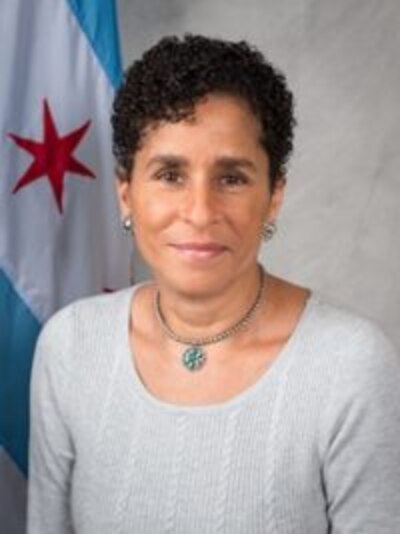Lisa Morrison Butler presides over half of the city’s early learning expansion — the half that doesn’t involve schools. As commissioner in charge of the city’s Department of Family and Support Services, she just oversaw the distribution of $200 million in awards for community-run preschools and child care centers, a process that is raising questions among advocates and some providers.
Chalkbeat sat down with Butler in her West Town office to ask about the grant renewal, impact from universal pre-K rollout in the schools, and her larger vision.
This transcript was lightly edited for clarity and length.
Several experienced nonprofits charge that they lost seats in a large-scale grant recompetition. What happened?
There had been so much discussion about 4-year-olds being welcomed inside Chicago Public Schools, so we were trying to get people to begin to think about how to evolve their model for more children under 3.
So I think people thought, there’s going to be a huge explosion in birth-to-3 slots, and also that the state of Illinois is going to throw in the full $100 million that we asked for.
Not all the state money came through. And there are more birth-to-3 slots — but not thousands more. Another thing that ate up the money was the increase in the per slot rate.
So rates for children in the Early Head Start programs, for example, went from about $8,700 per slot to $13,500 per slot. So there were significant increases in the per slot rate, as well as an increase in the number of slots.

Can you explain why some organizations or businesses rose to the top and and what role quality ratings played in scoring applicants?
We really tried to get at the quality piece. We talked about wanting to understand, for instance, how you would engage families. That’s very important in the early learning community. There were places where we talked about the credentialing with your teaching, and the rest of your staff. There were places in there where we talked about the curriculum, and one of the very different things this time … was we linked it to kindergarten readiness very clearly.
But did you adjust for center directors of smaller agencies who may be very good early childhood educators but who aren’t great grant writers?
We did a couple of things. For instance, we recruited external readers, many of whom came from local universities or colleges that had early learning programs. So we were looking for some expertise. And one of the things that we talked to the readers about was look for substance and not style. Don’t hold it against somebody if you didn’t like the way they wrote. Look for what they’re saying.
What we did was then try to look through many lenses we thought mattered. Community areas. Program models. Where people embraced the policy goals. Did they blend funding?
Is there any sort of appeals process?
Our decisions are final, there is not an appeals process for us.
There’s this perception that CPS is stealing all of the 4-year-olds. How do you respond to that?
It’s not an us-versus-CPS thing. We are really partnering with them closely.
We believe that Head Start and Early Head Start and our community-based programs offer something unique that CPS cannot offer. The supports for families are a thing that CPS cannot match us on. These are things that children need in order to thrive and grow. So we feel that we can make a point in the minds of parents that we should be their first choice. Having said that, parents still ultimately need to be able to determine where their kids go. If you are an upper-middle-class parent or a wealthier parent, that is a decision that you take for granted. We are bringing now that same ability to make that choice to working class parents and to people who may be living below the poverty line. And we think that’s a good thing.
Do you see enough parents taking advantage of those options? Mayor Lori Lightfoot said a few weeks ago that, between schools and community agencies, there were thousands of preschool vacancies.
Our families enroll late. So it’s always it’s always slow going for us until late August to September. We always worry about it. We do think that there are some parents that are waiting to see whether or not their kids can get into Chicago Public Schools.
Will you make adjustments after school enrollment data comes in?
We absolutely will have to look at that information and make some adjustments. I just don’t know yet what they are.

